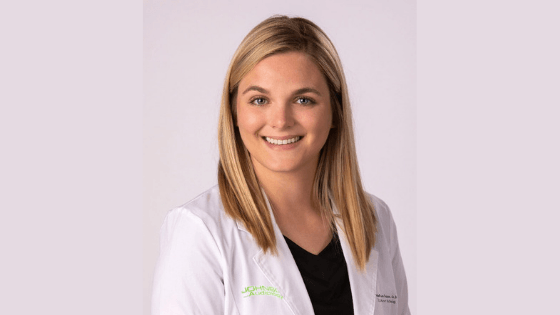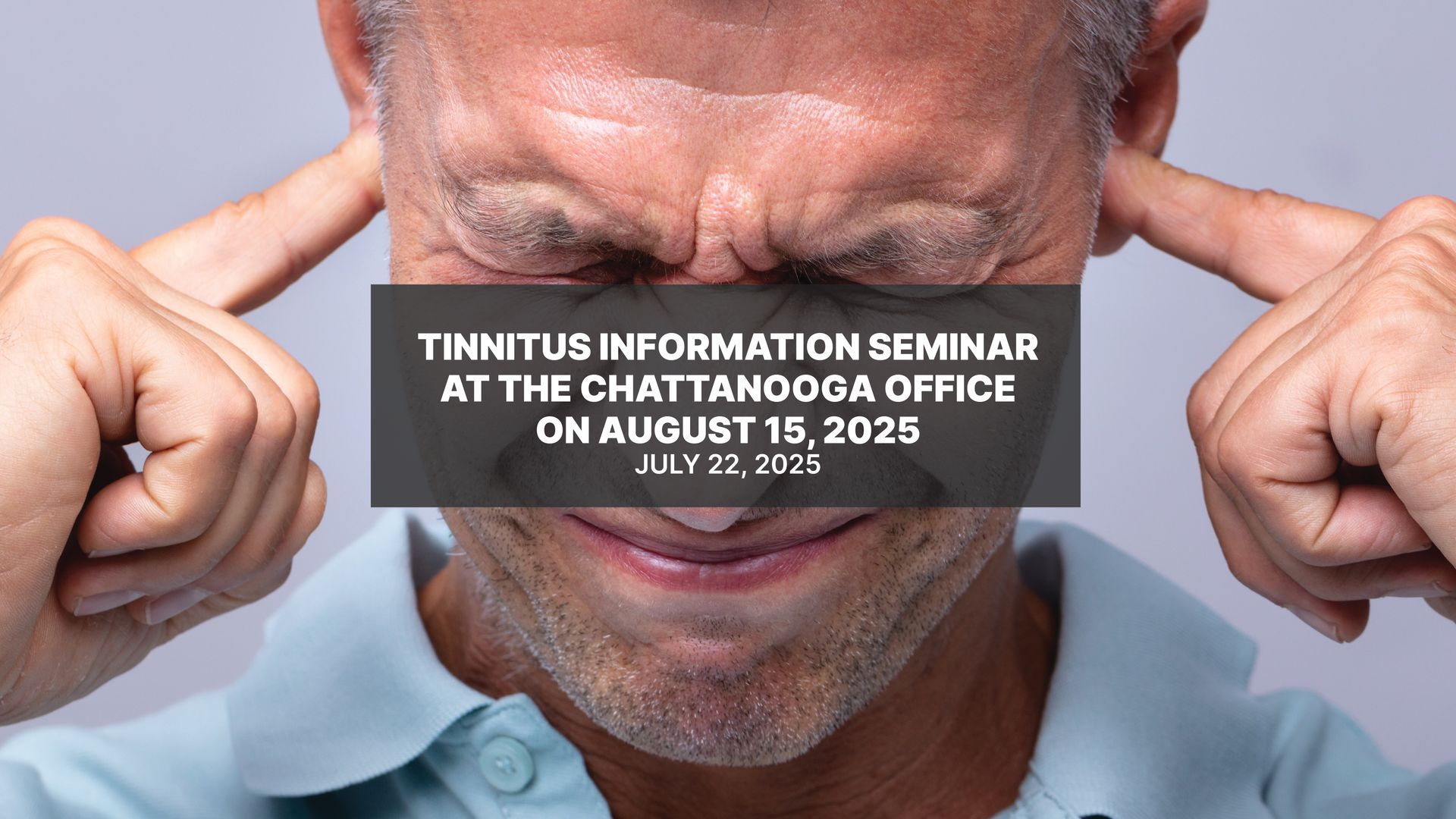Meet Madison Sakaan, Our New Doctor of Audiology in Chattanooga

Johnson Audiology welcomes Madison Sakaan, Au.D., to its Chattanooga office.
About joining the team at Johnson Audiology, Sakaan commented, “Johnson Audiology is an audiologist-owned practice that is clearly making a significant positive impact in the Chattanooga area. I appreciate the fact that Johnson Audiology allows me to perform high-quality hearing evaluations and fit hearing aids according to best practice.”
Sakaan received her Doctorate of Audiology degree from East Tennessee State University and her Bachelor of Science in Education from the University of Tennessee, Knoxville. She graduated summa cum laude for both her graduate and undergraduate degree. Her clinical experience includes work at the University of Kentucky Medical Center’s Department of Otolaryngology, Veteran’s Affairs Medical Center at Mountain Home Audiology Clinic, Johnson City Community Health Center’s Audiology Clinic, Wautauga Hearing, Bristol Speech and Hearing Center; Mission Children’s Hospital in Asheville, N.C., and East Tennessee State University’s Speech and Hearing Clinic.
She is skilled in adult and pediatric audiological evaluation, hearing aid evaluation and fitting, tinnitus evaluation and treatment and programming of implantable devices, including cochlear implants and bone induction hearing devices.
Sakaan said that what excites her most about working with Johnson Audiology “is the opportunity to serve patients with cochlear implants.” She went on to say, “Cochlear implants have long been a passion of mine, and I am overjoyed to begin working with patients in the Chattanooga area who currently have cochlear implants and with those who are considering cochlear implantation.”
Megan Johnson, Au.D., and owner of Johnson Audiology said, “We are very excited to welcome Dr. Sakaan to our ranks especially because of her experience with implantable devices. Johnson Audiology has offered cochlear diagnostics and follow-up care for a few years now and recently announced exciting news about working with Associates in ENT , a Chattanooga otolaryngology practice that now offers cochlear implant surgery at Memorial Hospital here in Chattanooga. Prior to this summer, cochlear patients could visit Johnson Audiology for initial diagnostic services and follow-up care but there were no Ear, Nose and Throat surgeons in the area performing the implant surgery. Patients had to travel to larger cities like Nashville and Atlanta. With a complete continuum of care now available here in Chattanooga, having Dr. Sakaan serving cochlear patients means even more patients who can be helped.”
About her chosen profession, Sakaan said, “My start in audiology was a bit unconventional. In high school, I loved languages and began college as a Spanish major. However, I later decided I wanted to be involved in healthcare in some way. That is when I learned of speech-language pathology. It seemed like a good fit as it incorporated healthcare and my love of languages! As speech-language pathologists and audiologists work together closely, part of my coursework was an Introduction to Audiology course. The minute I began this class, I became fascinated with audiology. It incorporated just the right amount of diagnostics, treatment, and follow-up. I was especially drawn to the fact that I could build long-term relationships with patients and really have a positive impact on their lives. “
Sakaan and her husband, who is an emergency medicine resident at Erlanger, moved to Chattanooga in May. She said, “I was born in Illinois, and my family moved to Dyersburg, Tennessee in the western part of the state when I was five years old so I’ve always considered myself a Tennessee girl. Being from West Tennessee, I did not grow up around mountains, so I have a special appreciation for the beautiful topography of the Chattanooga area. My husband and I have loved every second of living here! In particular, we have enjoyed the abundant food scene, running in the downtown area, and the aquarium. Hiking is one of my favorite pastimes, and this region is a hiker’s paradise.”
Johnson said, “Dr. Sakaan is a welcomed addition to the Johnson Audiology family both with our current patients and staff. She has an impressive educational background and experience in a variety of audiologic settings. She also has that wonderful mix of methodical audiologic skills along with a true desire to help people. These traits shine through in how she approaches and cares for each and every patient.”
Johnson Audiology currently has nine Doctors of Audiology in five offices in Tennessee and Georgia. Sakaan joins Dr. Johnson in the office located on Gunbarrel Road along with Whitney Smith, Au.D. and Susan Porter, Au.D. who have been with Johnson Audiology since 2011 and 2014, respectively. They, along with patient care coordinators Holly Chadwick, Carrie Bingham, Jill Goodman, and Heather Whalen, thank current patients of Johnson Audiology for their ongoing support and invite new patients to call the office at (423) 710.1432.




